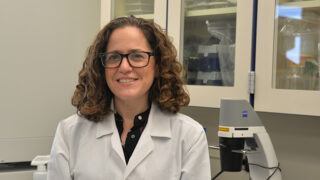Areas of Study
Vascular biology
Education
- University of Virginia School of Medicine1982PhD
- SUNY Binghamton1975BS
Research
The principal objective of my laboratory is to understand mechanisms by which intracellular Ca2+ signals regulate vascular smooth muscle (VSM) function, physiologically and in vascular disease. Ongoing work has focused on the structure and function of one ubiquitous Ca2+ signal mediator, namely multifunctional Ca2+/calmodulin-dependent protein kinase II (CaMKII). One major aspect of our current effort is to use molecular/genetic approaches to manipulate CaMKII isozyme expression in order to test the concept that Ca2+ signaling, via specific CaMKII isoforms, regulates VSM gene transcription and VSM phenotype-specific functions. Through collaborations, we are evaluating pro-inflammatory signaling pathways and molecules in VSM that contribute to vascular remodeling in response to injury and aortic aneurysmal disease. More recently, we have broadened our investigations of CaMKII-dependent functions to bring new insights into control of vascular wall remodeling by evaluating function of CaMKII isozymes in vascular endothelium; specifically in the contexts of re-endothelialization following intraluminal arterial injury, arteriovenous fistula maturation and failure, and angiogenesis.
We have established ourselves as one of the laboratories leading this field and have available a unique combination of expertise and reagents in smooth muscle biology, Ca2+ signaling and CaMKII structure-function that we bring to studies of vascular biology and pathophysiology and which we have made widely available to colleagues in the field.
Summary:
- vascular biology
- regulation of vascular smooth muscle (VSM) function
- Ca2+-signaling
- Ca2+/calmodulin-dependent protein kinase II (CaMKII)
- vascular remodeling in response to injury/disease
Publications
View Harold A. Singer's articles on the National Institute of Health's PubMed website.
